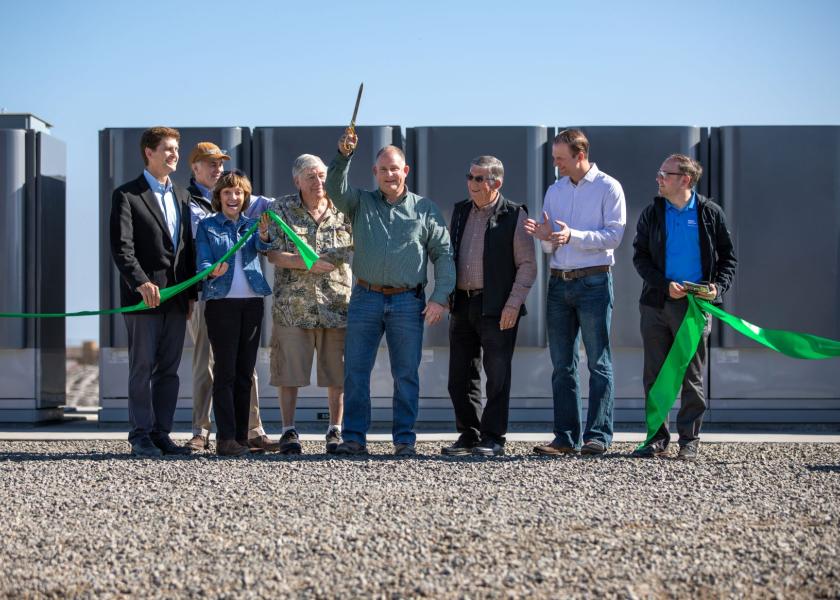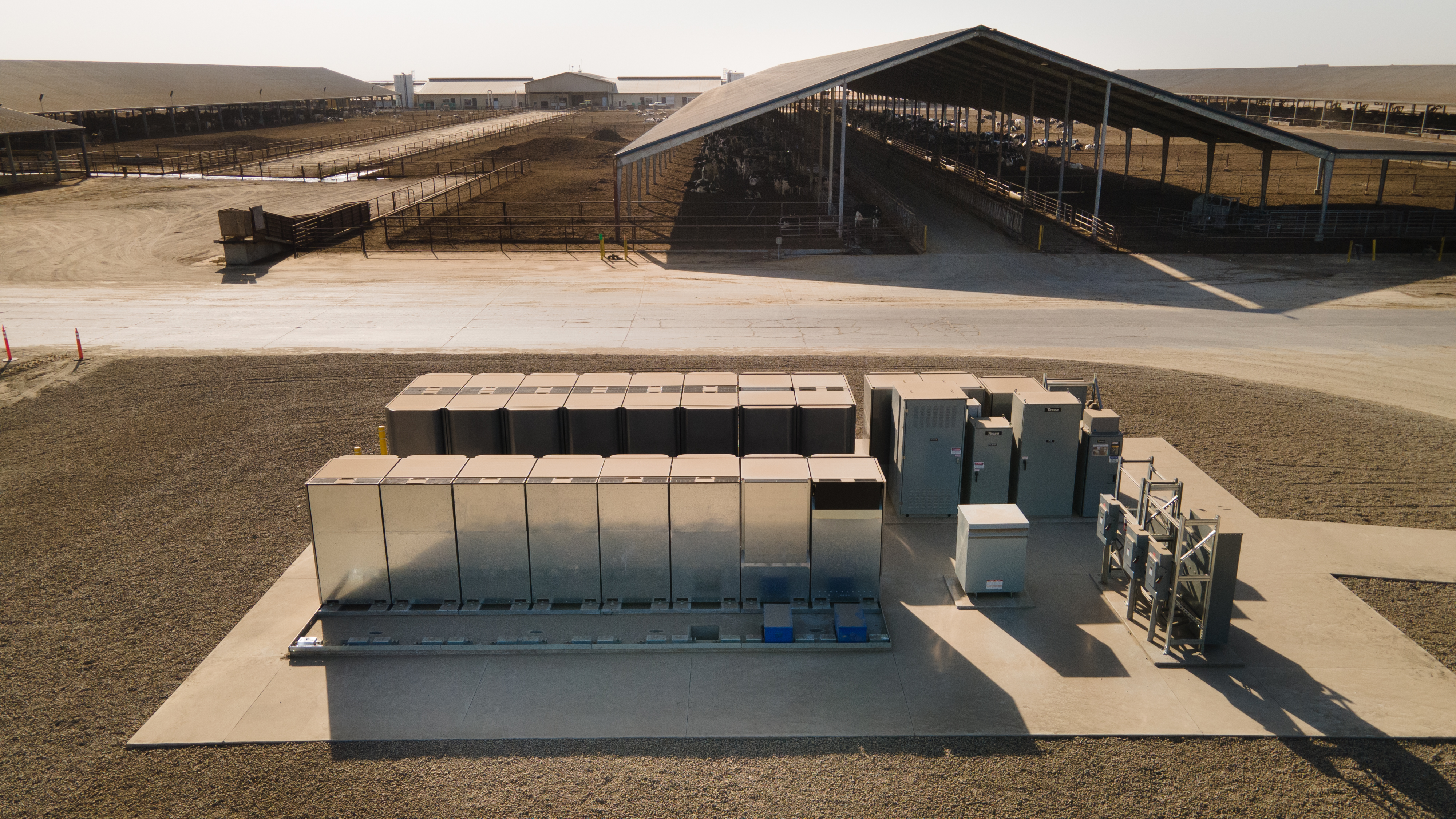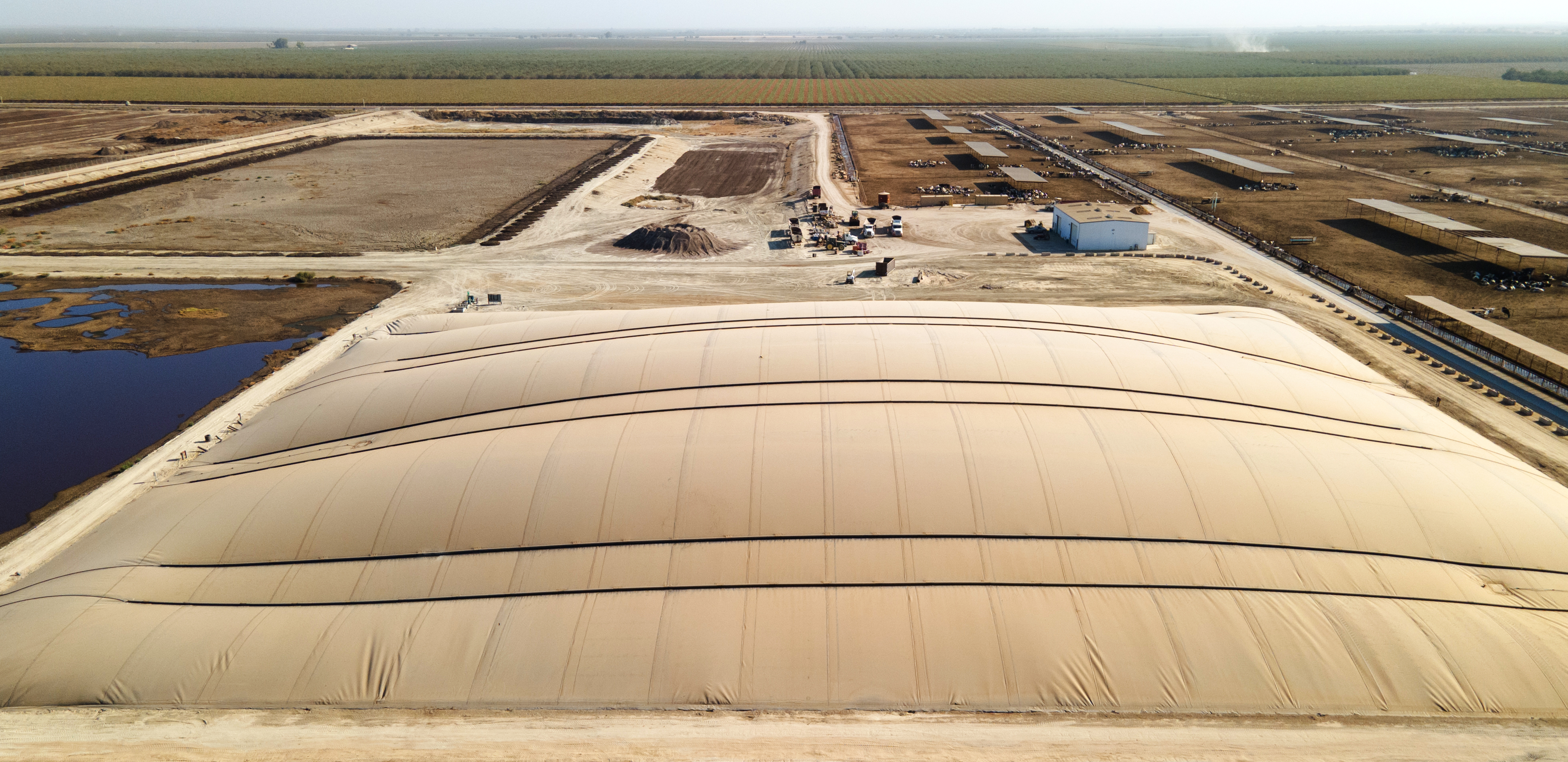A Deep Dive into Sustainable Innovation

Today’s dairy farmers continue to face a long list of challenges. Higher inflation, ongoing labor concerns and razor-thin margins push producers to think outside the box for innovative ways to dial in on efficiencies and add dollars to their bottom line.
Innovation can simply be defined as taking two things that exist and putting them together in a new way. This is exactly the case for Bar 20 Dairy, a 7,000-cow dairy that also farms 5,000 acres in California’s San Joaquin Valley.
Steve Shehadey, a third-generation farmer and owner of Bar 20 Dairy, along with seven other family members, says they have honed in on sustainable efforts that have helped pay dividends to their operation — literally. In addition, the efforts have aided in overall energy efficiencies.
The Shehadeys started the process of building a methane digester before incentives were put in place by the state of California to reduce greenhouse gas (GHG) emissions from the dairy industry. After numerous unforeseen hurdles, they finally accomplished that goal, pioneering the adoption of a groundbreaking technology that will forever transform planet-smart dairy farming practices.
Trendsetters
Recently, Bar 20 received the 2023 Innovative Dairy Farmer of the Year award by the International Dairy Foods Association (IDFA) because of the sustainable and innovative advancements made on their Kerman, Calif., dairy. In 2022, they were also honored with the U.S. Dairy Sustainability award.
“What Bar 20 Dairy Farm has accomplished is nothing short of impressive, perhaps best described as a potential game changer and trendsetter in the electric vehicle market,” says Adam Langton, energy services manager for BMW of North America LLC.
Michael Dykes, DVM, IDFA president and CEO, says Bar 20 Dairy is a model for how dairy farms can prioritize innovation and stewardship at all levels of their operations.
“IDFA is grateful to the Shehadey family for their vision and leadership on behalf of U.S. dairy, and we’re proud to know innovative farms like Bar 20 are paving the way for our industry to thrive,” Dykes says.
Understanding there are many dairies implementing innovative projects across the U.S., Bar 20 is honored to receive this award. Shehadey says his family values hard work, determination and a willingness to learn.

“These values were instilled in me by my grandfather, Larry, and my dad, John,” Shehadey says. “To us, this award is special because it’s a culmination of implementing new practices and technologies on the farm over seven decades.”
Bar 20 sustainable investments made to date:
- 2007: Began working with a methane digester company
- 2017: Completed a 1 megawatt solar dairy
- 2019: Completed the installation of an electric feed-mixing station
- 2021: Completed a digester with California Bioenergy and Bloom Fuel Cell
Shehadey says these kinds of projects are investments made for future benefits. For example, both the solar and digester produce more power than the dairy and farm use, allowing Bar 20 to sell the surplus energy. The electric feed mixer saves on diesel fuel by using renewable electricity to mix the feed instead. Additionally, electricity needs are offset by a 2 megawatt on-site solar array, and 100% LED bulbs are used on the farm.
BMW Partnership
Bar 20’s methane digester builds on a collaboration between the farm as well as BMW North America and California Bioenergy. What differentiates Bar 20’s digester from many others across the U.S. is how the fuel cell technology creates ultraclean renewable electricity on site. The system is efficient, producing twice as much electricity as conventional generators while using the same amount of biogas.

In addition to the varied environmental benefits, the partnership also brings new revenue to family farms and agricultural communities through the production of clean transportation fuel. Through the California Low Carbon Fuel Standard (LCFS) program, BMW purchases environmental credits generated by Bar 20 Dairy. This type of innovative cross-sector alignment not only helps farm communities with new revenue, but also serves as a model to accelerate the adoption of biodigesters at more farms in California and beyond.
Shehadey says today’s dairies cannot survive without additional revenue sources. In addition to the credits they are selling to BMW for the low-carbon transportation fuel, they are also capitalizing on the energy savings they get from their two solar fields. Bar 20 also supplements the farm’s income with thousands of acres of crops.
On an annual basis, Bar 20 Dairy’s 25-million-gallon methane digester captures more than 25,000 tons of CO2 emissions, equivalent to the carbon sequestered by more than 30,629 acres of U.S. forests in one year. Without the digester, these emissions would otherwise escape into the atmosphere, further contributing to climate change.

Future Plans
The Shehadey family continues to look at opportunities to propel the family dairy forward and are constantly searching for ways to be more efficient — both economically and environmentally.
“When I was young, my grandfather told me that we make milk for people’s children,” Shehadey says. “That has always stuck with us on the farm. We can’t offer anything but our best for children and the families who buy our milk. Today, that also means doing what we can to help clean the San Joaquin Valley air and be part of a climate solution.”
Bar 20 is working with a hydrogen transportation fuel production company to potentially provide additional biogas from the dairy to produce renewable hydrogen transportation fuel. They are also evaluating technologies to reduce water usage on the dairy and farms.
Tips to Other Farms
Shehadey says there are a lot of exciting new technologies that will improve efficiency on the dairy and deliver benefits to the environment and local community. He shares the first step is to look for help from companies with knowledge and expertise.
“They should have values and ethics similar to yours,” Shehadey says. “Once you find a trusted partner, you can identify the technology that fits your farm the best.”







